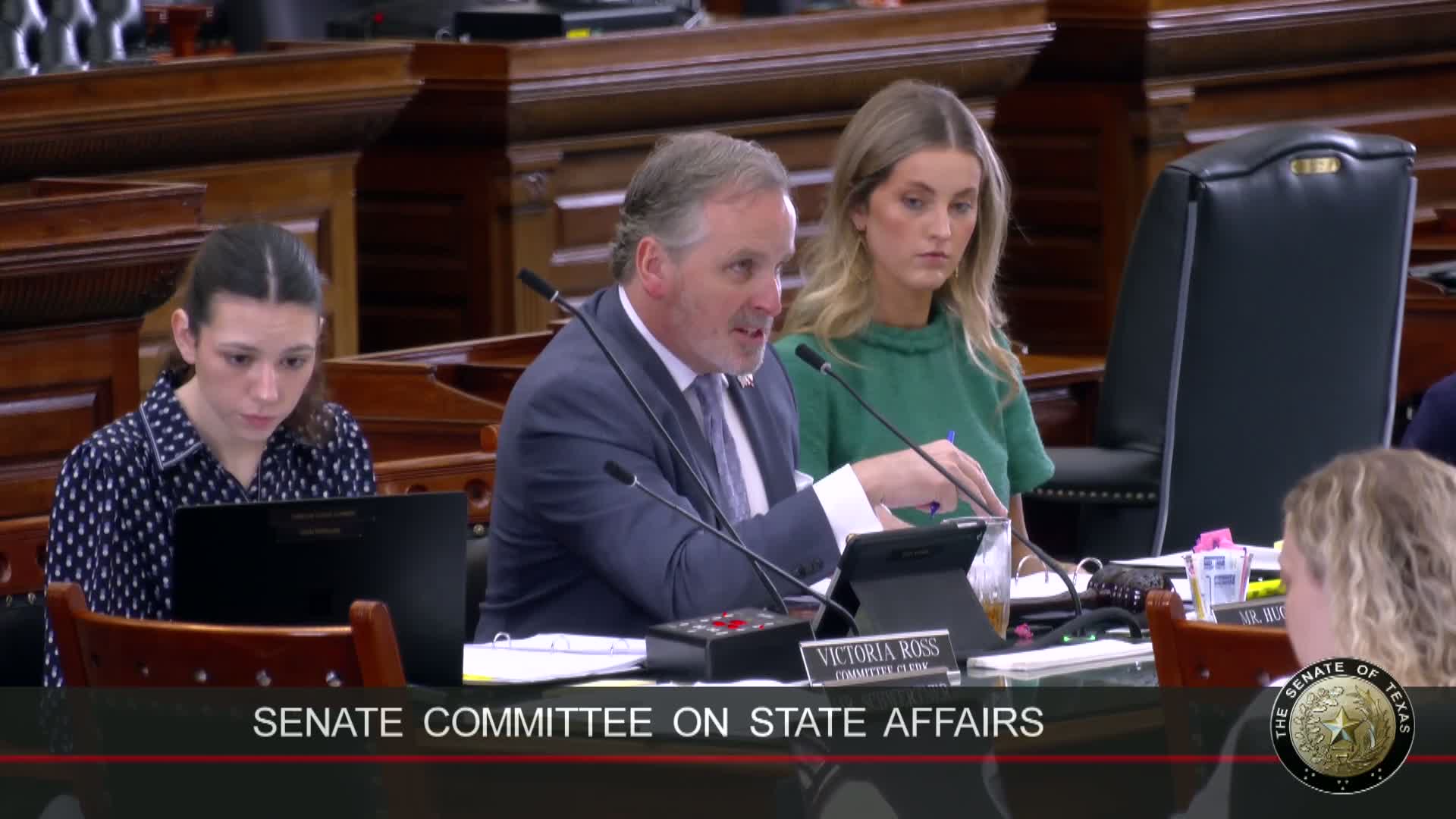Committee considers bill to bar licensing agencies from denying or disciplining licensees for sincere religious beliefs
Get AI-powered insights, summaries, and transcripts
Subscribe
Summary
Senators considered Senate Bill 2943, a measure to add religious‑freedom protections for applicants and holders of occupational licenses by amending chapter 57 of the Occupations Code.
Senators considered Senate Bill 2943, a refiled measure that would add religious‑freedom protections for applicants and holders of occupational licenses by amending chapter 57 of the Occupations Code.
Jonathan Covey, director of policy for Texas Values, testified in support and summarized key provisions: the bill would prohibit a state agency that issues licenses to a business, occupation or profession from adopting a rule or policy that limits an applicant's ability to obtain, maintain or renew a license based on a sincerely held religious belief; or that burdens free exercise, freedom of speech regarding sincerely held religious beliefs, or membership in a religious organization. Covey said the measure exempts peace officers to avoid undermining operational standards and includes a non‑construction clause ensuring license holders providing medical services cannot refuse emergency care when a person faces imminent danger. Covey referenced Section 57.003 of the Occupations Code as the target for amendment and cited Garcia v. State when noting the definition of "imminent serious bodily injury."
The sponsor, Senator Hagenboud, described the bill as ensuring Texas agencies do not adopt policies that hinder licensure because of religious convictions and asked for favorable consideration. No public witnesses registered to speak on the bill at the hearing; the chair closed public testimony and left SB 2943 pending.
Committee members asked clarifying questions about affected license types; Covey said the primary practical impact would likely be on health care providers, professional counselors and attorneys.
